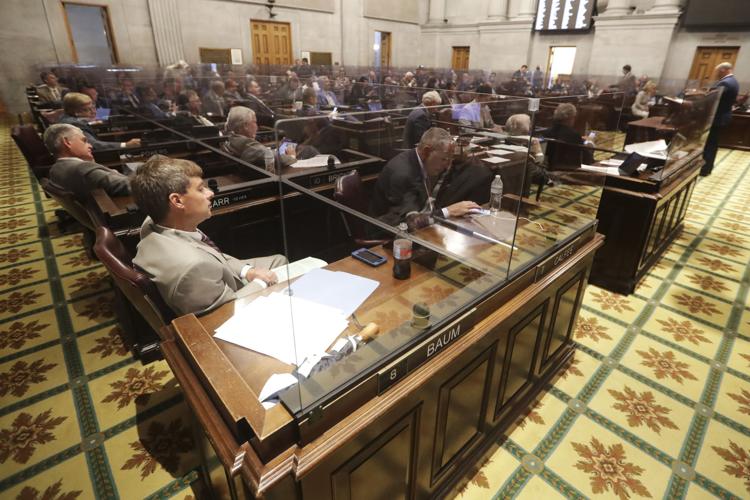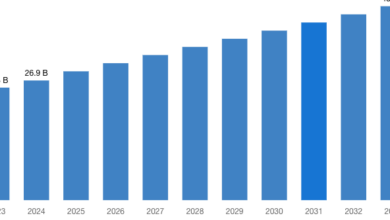COVID-19 precautions in spotlight ahead of possible Tennessee Legislature special session

Rep. Charlie Baum (front left), R-Murfreesboro, and other House members sit behind glass partitions because of the coronavirus pandemic during a House session Tuesday, June 9, 2020, in Nashville, Tenn.
(The Center Square) – No additional pandemic protocols have been adopted in the Tennessee Legislature after three COVID-19 cases were reported, including one state representative testing positive.
Social distancing and sanitation procedures have been in place on the Capitol campus since March. Ahead of an anticipated special session, speakers of both chambers encourage vigilance.
“We encourage everyone to continue taking reasonable precautions to protect themselves and others from COVID-19, including testing if they have been exposed, as well as the use of masks in public,” Doug Kufner, a spokesman for House Speaker Cameron Sexton, R-Crossville, told The Center Square. “Ultimately, those decisions are up to each individual, just as the governor has enabled county mayors to make decisions based upon situations within their individual communities.”
“Lt. Gov. McNally is continually monitoring the situation both across the state and in Nashville,” Adam Kleinheider, a spokesman for Lt. Gov. Randy McNally, told The Center Square. “If and when a special session is called, the Senate will take every precaution to make sure our members and staff stay safe and healthy.”
Two of the three reported COVID-19 cases in the Legislature have not been identified. Rep. Kent Calfee, R-Kingston, identified himself as one in a Facebook post last week after being tested alongside his wife.
“[Friday] afternoon those test results also came back positive,” Calfee said in a Facebook post. “At this time, I am not experiencing any symptoms, and I have been self-isolating.”
Kufner confirmed anyone in close contact with Calfee for extended periods had been notified according to contact tracing procedures.
“Thankfully, we are not aware that any are experiencing symptoms or have tested positive for the virus at this time, with the 14-day incubation period set to expire today,” Kufner said.
In March, the Legislature implemented COVID-19 protocols and procedures according to guidance from the CDC and Tennessee Department of Health. These included closing the Capitol campus to the public, with limited exceptions; temperature checks for employees and guests entering the building; masks required in common areas; and plastic glass dividers in committee rooms and chamber floors. Signs encouraging social distancing are posted throughout the Capitol campus, and surfaces frequently are sanitized.
“Members and staff who are exposed or who report symptoms are required to get tested and isolate. Contact tracing procedures are then employed to prevent further spread,” Kleinheider said. “The Senate has taken the COVID-19 pandemic seriously from the beginning and will continue to. Our pandemic protocols remain in place.”
Senate Democrats said existing protocols are not enough. Sen. Katrina Robinson, D-Memphis, joined a news conference held by the Senate Democratic Caucus on Tuesday from Corpus Christi, Texas, where she is assisting as a nurse with response to a severe outbreak.
“We can’t politicize people’s health just because we think that it’s a hoax,” Robinson said. “That’s why we’re in the situation that we’re in.”
Democratic Caucus Chairman Raumesh Akbari, D-Memphis, agreed that additional measures should be taken, citing a recent outbreak in Mississippi, where 26 members of the Legislature were infected after not following protocols, including the state’s lieutenant governor and House speaker.
“Our staff members and visitors are required to wear masks in common areas, and they’re temperature checked, so I think that it would be hypocritical and counterproductive for members not to have to wear a mask as well,” Akbari said. “We don’t want our special session to be a super-spreader event.”
Both speakers’ offices will continue to monitor the situation.
“We will continue to remain flexible – just as we have since the pandemic began in Tennessee – as we evaluate the latest data, new cases and additional medical guidance, and we will make any changes to our existing policies as they are needed,” Kufner said.


